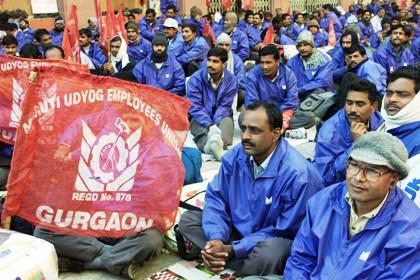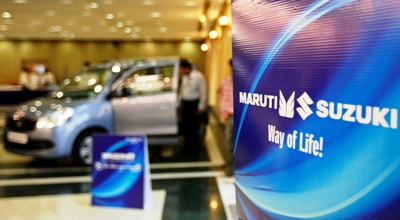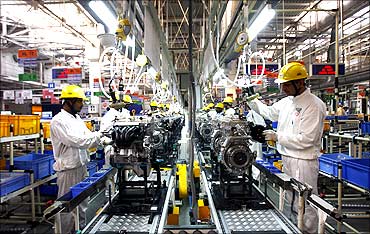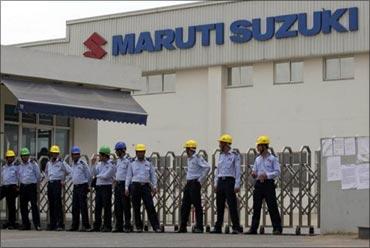
It will be a proud moment for Maruti Suzuki and its chairman, R C Bhargava, when he receives 'The order of the Rising Sun, Gold and Silver' from Emperor Akihito of Japan at the Imperial Palace in Tokyo on Monday.
But, the timing of the award could perhaps have been better.
It comes just when India's largest car maker is in the eye of a storm over a severance deal with some of the workers who led a prolonged strike.
Institutional investors and independent advisors are questioning the company's crisis-handling process in the wake of reports that several workers, including strike leaders Sonu Gujjar and Shiv Kumar, quietly resigned after pocketing hefty payouts.
. . .

Most of those who have left were spearheading the work disruption at the company's Manesar unit since June this year.
Former Gujarat Ambuja chief Anil Singhvi termed it 'one of the most badly handled situations' in the recent past. Singhvi, with former Fitch managing director Amit Tandon, has set up an organisation called Institutional Investors Advisory Services.
Among other things, it goes through the AGM and EGM resolutions of companies and writes reports to help investors exercise their votes in an informed manner.
"Of course, there is a corporate governance issue in what Maruti has done. No doubt about that. It was totally unbecoming of such a large company," Singhvi said.
. . .

When contacted, Bhargava said he was not aware of any investors raising issues about the settlement with workers.
He did not want to comment on the specifics of the settlement.
But, institutional investors are not so convinced.
The chief executive officer of a bank-sponsored asset management company said some investors would be happy for the time being as it made sense for a company management to drive out striking workers and restore production.
"But, it will do long-term damage to Maruti's corporate governance practices".
. . .

What was worse, fund managers said, was that there was no communication from the company management when striking workers were flushed out.
"I understand there is no obligation on the company to disclose this but given the potential of the disruption caused, a communication was a must to bring in some clarity," said the chief investment officer of a foreign fund house.
A proper disclosure regarding the deal with workers was all the more necessary as prolonged labour unrest had seen the company's shares struggle.
The Maruti stock has not only underperformed the benchmark indices but also failed to put a good show against the auto index.
. . .

Since June, Maruti Suzuki's stocks have plunged a little more than 10 per cent against a rise of 3.5 per cent in the auto index.
During this period, the BSE benchmark Sensex lost less than six per cent. Last week, Maruti's shares closed weak at Rs 1,123.35 on the BSE.
Gujjar and his 2,000-strong band of workers have stopped work thrice since June at the Manesar unit.
The labour unrest has been the worst over a decade in the company, resulting in a production loss of 74,500 units. That amounted to revenue losses of Rs 2,200 crore (Rs 22 billion).
. . .

Singhvi said he would need to go deeper into the issue to arrive at a definite conclusion on the developments in Maruti, but as an outsider, he felt "disgusted" by the way the management handled the situation.
"It's a wrong signal," he added.
Some institutional investors also said the deal seemed to have been politically brokered and it was not the ideal way to resolve worker unrest.
Institutional investors also feel cheated by Gujjar, who had become the poster boy for worker unions in the Manesar belt.
A few weeks back, they had a special conference call with Gujjar to understand the issue.
"And, now we learn he took some money from the management and vanished. Who do we trust?" asked one of the investors, who did not wish to be named.